Whether a powerful government finally acknowledges that its indiscriminate air strikes killed civilians, or a repressive government holds its own defence force to account for the killing of cattle keepers in a remote town, these steps can have a huge impact when it comes to changing peoples’ lives. Here are 10 wins for human rights across eastern Africa region that have made a huge difference this year!
ETHIOPIA
Ethiopia’s draconian CSO law amended
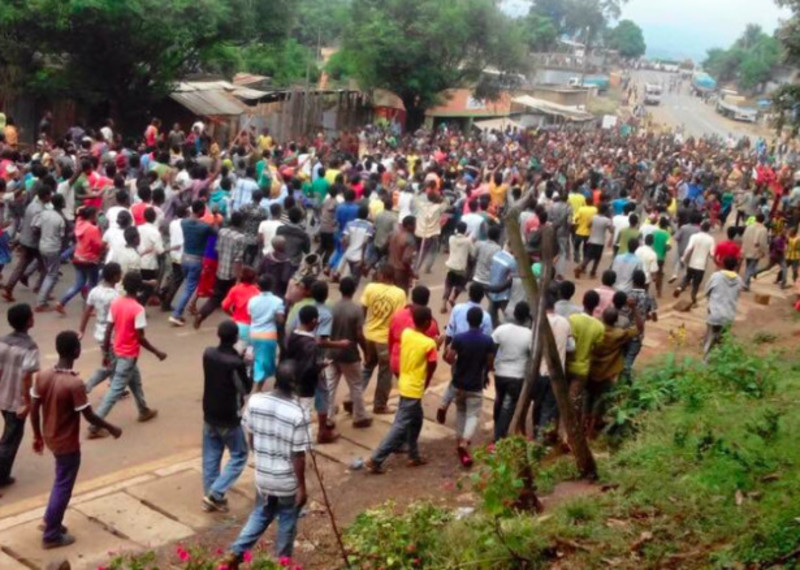
After voicing concerns over the draconian law to regulate civil society organizations (CSOs) that has stifled the operations of many non-governmental organizations in Ethiopia, Amnesty International met with Ethiopia’s Attorney General and his deputy. The aim was to discuss how to improve the new draft CSO law. The old law had been used to undermine human rights organizations by, among other restrictions, putting limits on their funding, forcing many to shut down. In a commentary on the draft Civil Society Proclamation published in December 2018, Amnesty International outlined the merits and demerits of the draft and highlighted areas that needed amending before being passed into law. This combination of private and public advocacy has contributed to positive improvements in the Proclamation (Act) adopted by the Ethiopian parliament in January 2019.
Ethiopian authorities hold those responsible for killing of at least 14 people in Moyale to account
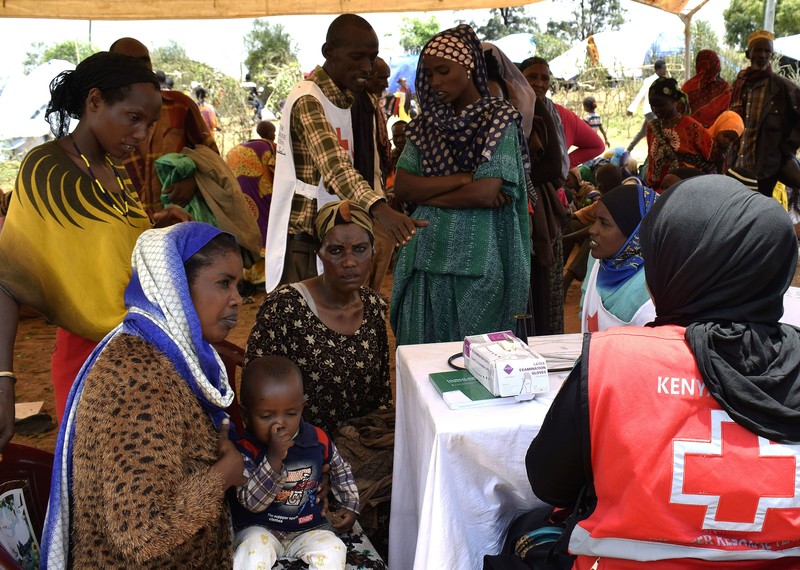
The work of many human rights activists and organizations, including Amnesty International, is beginning to yield results in Ethiopia. Our campaigning work has seen unprecedented legislative and judicial reforms, as well as the arrests of high-profile individuals suspected of gross human rights violations. A year after the killing of at least 14 people in Moyale, members of the Ethiopian Defense Forces, suspected of the crime, were put on trial. Amnesty has been at the forefront of this investigation, exposing the violations and calling for accountability of the members of the Ethiopian defense forces for their acts of injustice against the public.
RWANDA
The Rwandan National Commission for Human Rights finally publishes its report on the killings of Congolese refugees
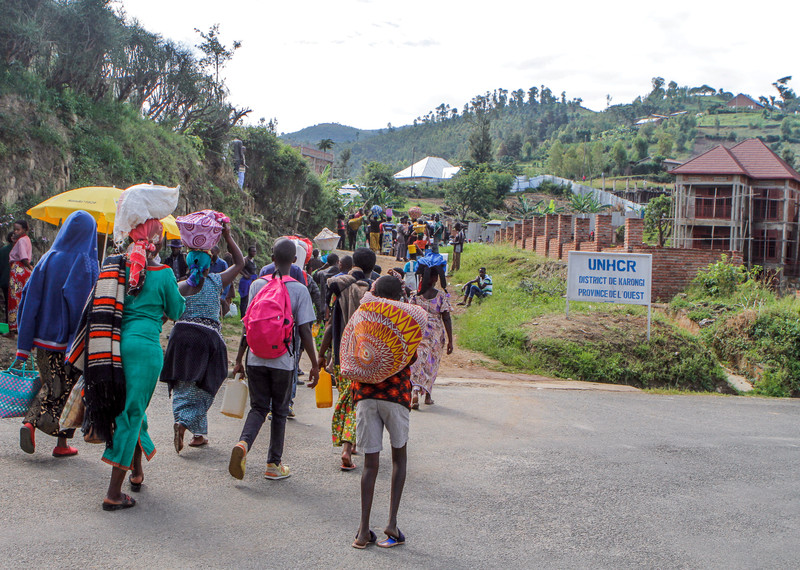
In February 2019, less than a week after we published a briefing highlighting the killings of Congolese refugees in western Rwanda, the National Commission for Human Rights published its May 2018 investigative report into the incidents. No police officer was ever investigated, arrested or convicted for the killing of the refugees. Instead, 63 refugees were arrested and one of them was convicted for causing a disturbance. The refugees were further warned not to paint Rwanda in a bad light by reporting the incidents. We believe our publication was integral to the publishing of the report.
Somalia
Somaliland poet arbitrarily arrested is released

In January, Somaliland authorities unlawfully arrested and detained Abdirahman Ibrahim Adan, also known as Abdirahman Abees, a popular poet in Somaliland. He was detained for reciting a poem that highlighted various human rights concerns on detention conditions in Somaliland, such as police brutality, arbitrary detention and degrading treatment of prisoners. Abdirahman Abees remained in detention for more than a month. In a concerted campaign, members of Amnesty International wrote letters to the Somaliland authorities demanding his release, which was followed up with a joint press release with Human Rights Watch, calling for Somaliland authorities to unconditionally release the poet. In February, the Hargeisa regional court acquitted the poet of all charges and ordered his release. After his release, the poet wrote a “thank you note” to Amnesty International for standing with him and demanding his release from illegal detention. “These campaigns and efforts played a key role in securing my release,” he said.
US Africa Command admits for the first time to have killed civilians in Somalia
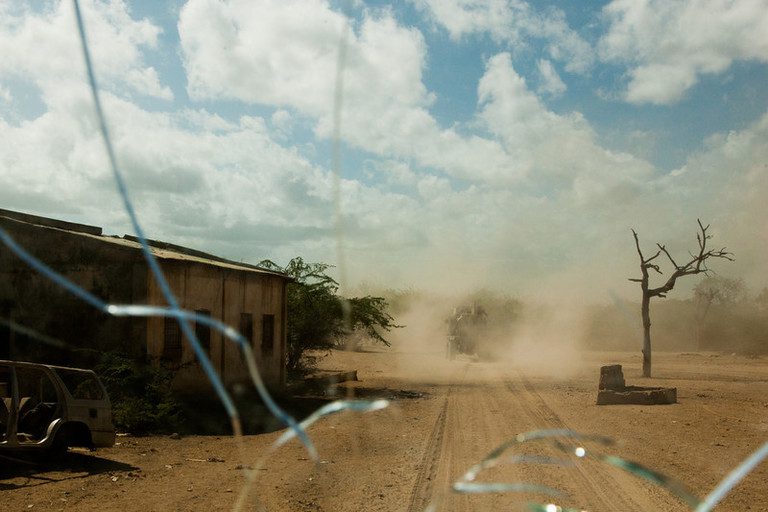
Following our March report The Hidden US War in Somalia, in which we documented the deaths of at least 14 civilians and reported eight others injured as a result US air strikes in Somalia, the United States Africa Command (AFRICOM) admitted for the first time to killing Somali civilians in their air strikes. In a press statement issued in April, AFRICOM noted that they released this information based on our report. Moreover, Gen. Thomas D. Waldhauser, the head of Africa Command, ordered a review of all airstrikes conducted in Somalia since 2017. We documented these incidents in only five out of more than 100 air strikes that US had carried out between 2016 and 2018 against armed groups in Somalia.
SOUTH SUDAN
South Sudanese activists living in Kenya protected from imminent kidnapping
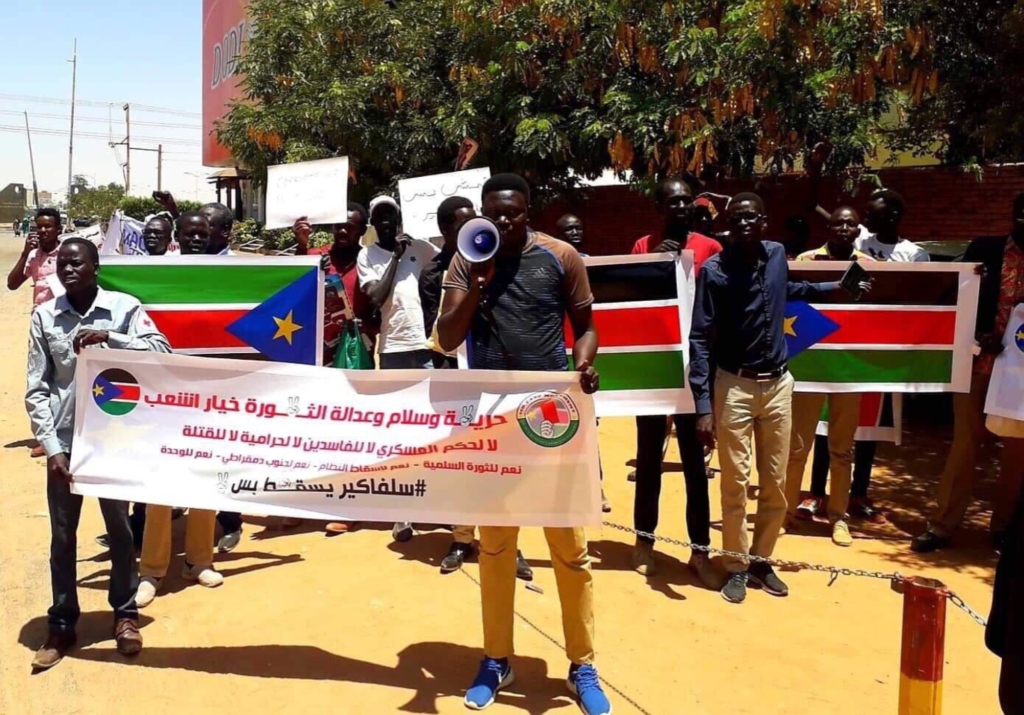
Amnesty’s intervention contributed to protection of the human rights of two South Sudanese activists who were at imminent risk of being kidnapped in Nairobi by South Sudanese national security agents.
The UNSC adopts a comprehensive arms embargo on South Sudan
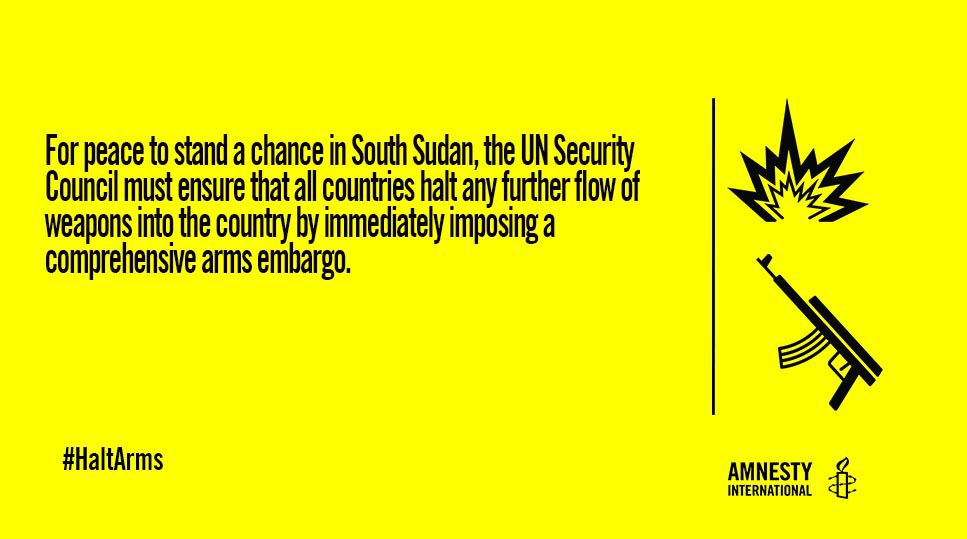
Following Amnesty’s lobbying with UN Security Council (UNSC) member states and other concerted advocacy efforts, the UNSC voted to renew the arms embargo imposed on South Sudan. This means that selling weapons, which have been used by the government to target civilians, to the conflict-ridden country is banned. It is hoped that this will reduce impact of the conflict on people.
Fighting to secure accountability processes for crimes committed during the armed conflict

After the Government of South Sudan contracted a lobby firm based in the US to amongst others, “delay and block the establishment of the Hybrid Court for South Sudan”, Amnesty’s active advocacy and campaigning work denouncing the contract contributed to the amendment of the contract and deletion of the clause.
We successfully campaigned for the renewal of the mandate of the UN Commission on Human Rights in South Sudan. The Commission is the only way to independently establish the facts and circumstances of alleged violations and abuses of human rights in South Sudan with a view to ensuring that those suspected to be responsible are held to account.
SUDAN
Transitional Military Council cancels previous allocation of UNAMID sites to the Rapid Support Forces
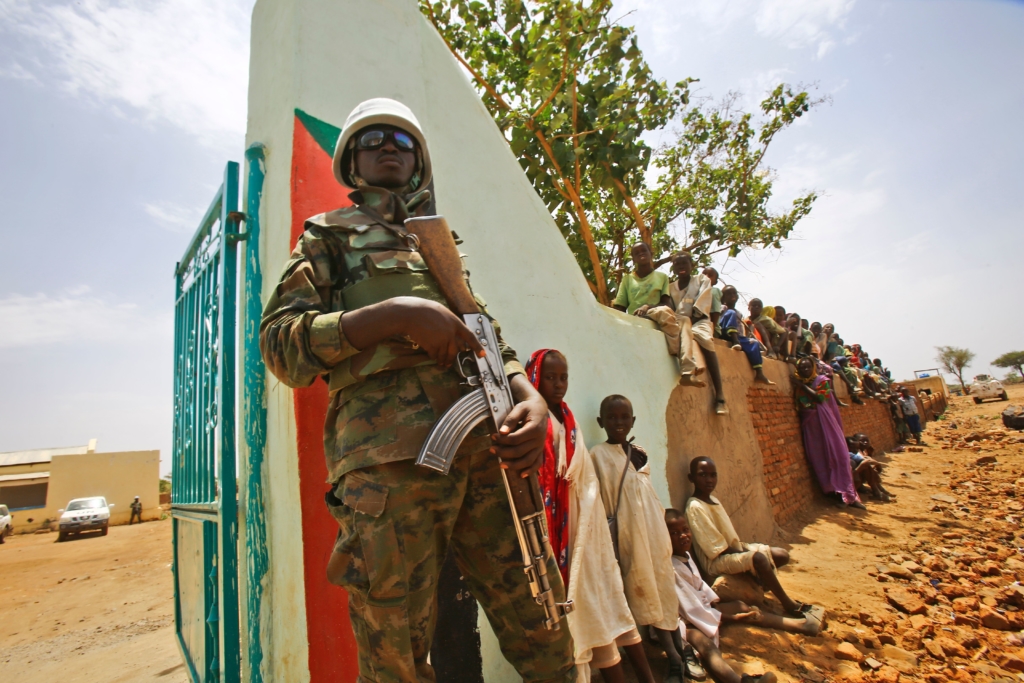
Following the downsizing of the hybrid UN and AU peace-keeping mission in Darfur, UNAMID, Amnesty called on UNAMID not to hand over its team sites to the Rapid Support Force (RSF) – the paramilitary force known to have committed war crimes and other serious human rights violations in Darfur. On 23 June, Abdel Fattah al-Burhan, head of the (now dissolved)Transitional Military Council, cancelled a decision allocating UNAMID camps to Darfur militia forces and instead issued a decree allocating the camps to the state governments in Darfur to use it in healthcare, education and other social services for the benefit of the Darfur communities.
UGANDA
Government compensates and resolves displaced persons in Apaa region
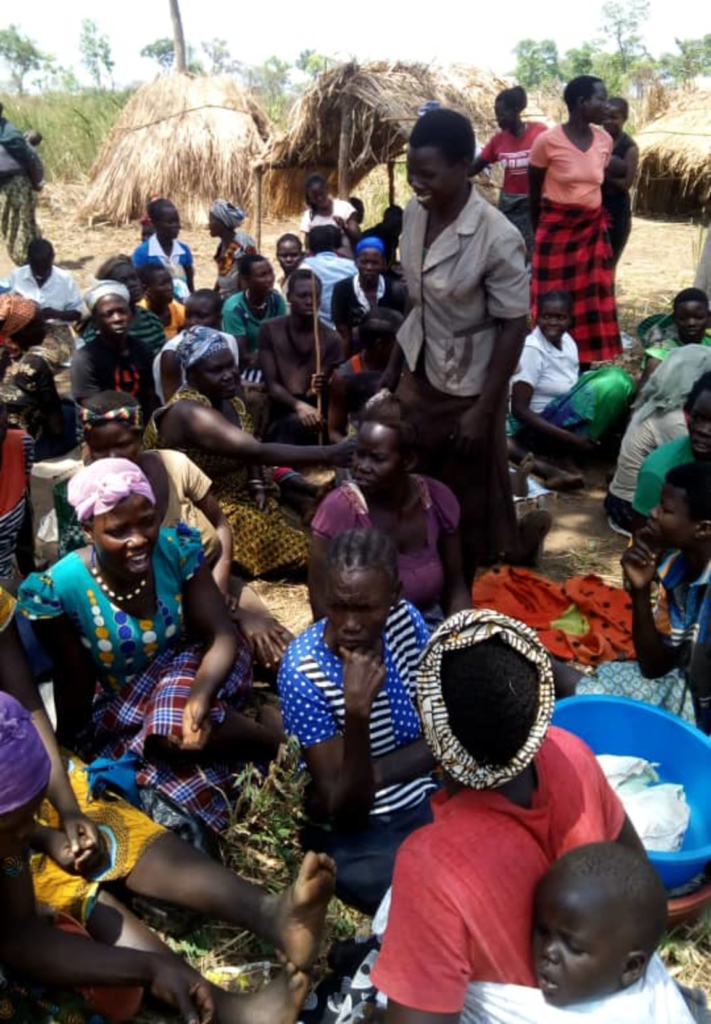
On 25 February, the Ugandan cabinet resolved to compensate and resettle over 300 households living in the Apaa conflict land in Northern Uganda. This resolution came six months after the government unveiled plans to end the Apaa conflict that included compensation for losses and resettlement. Earlier in May 2018, Amnesty International called on the Ugandan authorities to stop the forced evictions and again in February of this year, Amnesty wrote a letter to the Ugandan authorities highlighting our concerns about the violence that forced thousands of villagers to flee their homes in Apaa.
Thank you!
All these would not be possible without the support of our members, partners and those interested in human rights. Thank you for contributing immensely, in one way or another, to these successes through your support in campaigning – your letters, sharing on social media and financial contribution. Let’s keep working together to fight injustice


